Tai'an Hot Springs
The Tai-an Hot Springs are reached by a narrow winding mountain road lined by steep cliffs on one side and the murmuring Wenshui (Wunshui) River on the other. The springs are nestled among three peaks Henglong, Niaozuei and Huzi mountains, creating a peaceful retreat off the beaten track.
The hot springs at Tai-an are fed by water from the northwest foothills of Niaozuei Mountain. The Atayal people first discovered the springs in 1909 during a hunting expedition. During the Japanese colonial era, the Japanese built a police sanatorium and guest house here, dubbing the site as the "Ueshima Hot Springs." The area was renamed several times before President Chiang Ching-kuo re-christened it as the "Tai-an Hot Springs."
Tucked away deep in a secluded mountain area, the Tai'an Hot Springs have preserved their original natural beauty over the years. In addition to the natural allures of the valleys, waterfalls, cliffs, and warm springs, this area is a melting pot of Hakka and Atayal culture—a combination that has produced distinctive mountain cuisine to complement your soak in Tai'an's natural embrace.
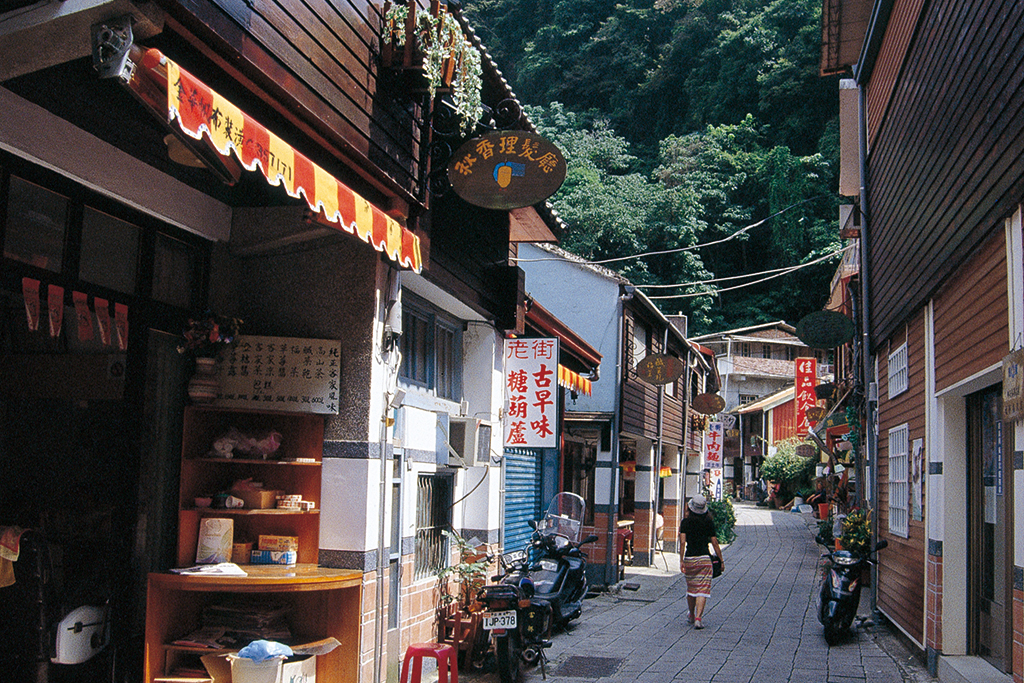
Tai'an Hot Springs
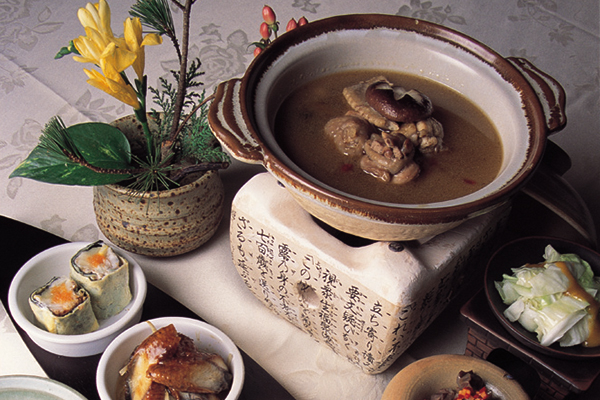
Hakka Food
Hakka Food
The Tai-an area is populated mainly by residents of Atayal and Hakka origin. The two cultures have contributed to the distinctive local cuisines. Sweet and crisp wild-grown vegetables, pickled mustard greens, boar, river fish, turtledoves, flying squirrels, and Ficus formosana and just some of the tasty natural ingredients used.
Hakka food is traditionally oily and heavily salted and spiced. However, in keeping with the health-conscious age, the Hakka cuisines in Tai-an are lighter and cooked with hot spring water to create exquisite dishes that fuse the best of Hakka and Atayal cooking traditions.
Spring Type: Slightly alkaline; sodium bicarbonate
Water Qualities: Clear tasteless, smooth and suitable for bathing
Guguan Hot Spring Area
The hot spring hotels and restaurants in Guguan are clustered along Dongguan Road, following the Dajia River. The most of the hotels provide bathing facilities and specialize in trout cuisines. In recent years, many long-established spas here have been renovated in elegant Japanese style.
The Japanese ambiance of Guguan is related to the history of this area. The springs were first developed during the early part of the Japanese occupation period. It is said that when the Japanese Meiji Emperor and his wife came to Guguan they were impressed by the natural beauty and excellent spring water quality. When the empress returned home, she soon gave birth to son. The hot springs here were subsequently known as the "Meiji Onsen" and "Spring of Sons.
"Cool mountain breeze, steaming hot spring water, and natural beauty come together at Guguan to create one of Taiwan's premier hot spring areas. Even the habitat-fussy trout are perfectly happy and content in pristine waters and nature of Guguan.
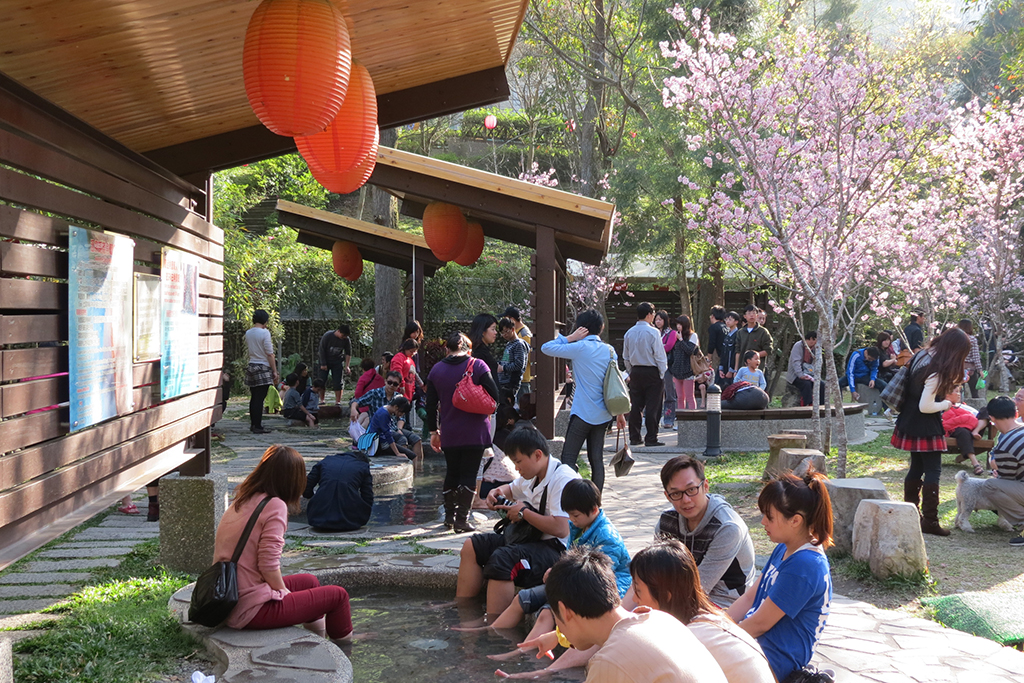
Guguan Hot Spring Area
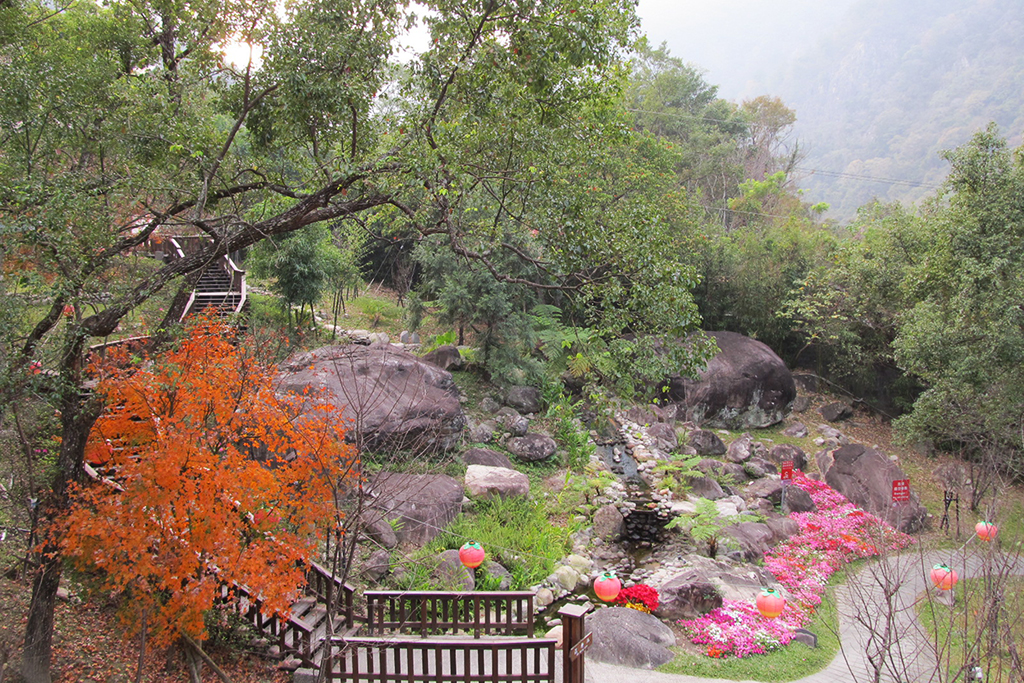
Guguan Hot Spring Park
Trout
Trout is a freshwater fish that is known to be fastidious about its living arrangements, requiring exceptionally clean water at a temperature ranging from 6 to 13 degrees centigrade. The river water in Guguan amply meets these conditions, and the area has therefore come to be known for its fresh and tender trout cuisines.
Spring Type: Slightly alkaline, carbonic acid
Water Qualities: Clear, tasteless and suitable for bathing
Dongpu Hot Spring
The Dongpu Hot Springs are situated in the scenic mountains by Yushan National Park. During the Japanese occupation period, this area was the site of a police sanatorium and later a number of hot spring hotels sprouted up here.
There are several well-known scenic sites close to the springs, including the Batongguan Historic Trail and Rainbow Waterfall, offering plenty of options for a healthy walk in the woods before a soothing and restorative hot spring soak.
The Dongpu Hot Spring Area is located in Xinyi Township of Nantou County. Xinyi is Taiwan's largest plum producing area, so winter bathers can also enjoy the snow-like plum blossoms in Feng Gui Dou and Wusonglun.

Dongpu Hot Spring
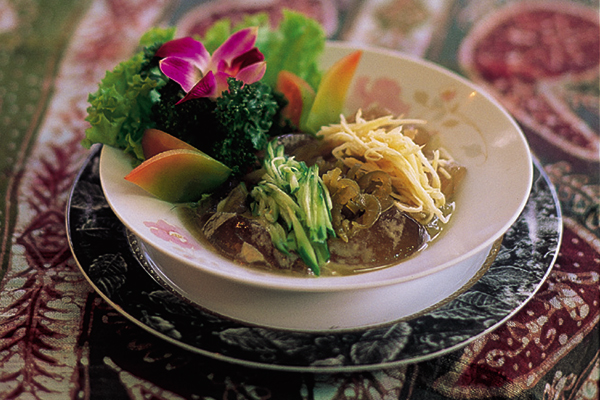
Plum Cuisine
Plum Cuisine
Every year during the plum blossom season, the hillsides of Xinyi Township turn into a sea of blooms that blanket the ground and trails like a snow. Rouge plum is the dominant variety of plum grown in Xinyi Township. The harvest is used in distinctive cuisines and a variety of products, including plum juice, plum vinegar, gummy dried plums, and plum brittle.
Spring Type: Slightly alkaline; carbonic acid
Water Qualities: Clear, tasteless, rich in calcium bicarbonate, sodium, magnesium, sulfur aluminum, pH value of 7.5~8.5.
Last update time:Aug 10, 2021